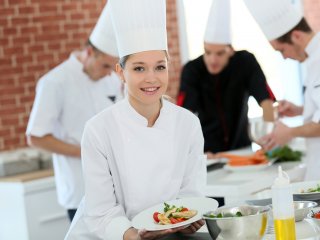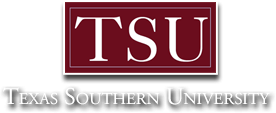
- Description
- Objectives
- Outline
- Materials
- System Requirements
- Watch a Demo
Learn the cooking principles you need to begin your career in this exciting industry with our Professional Cooking course. Learn the basics for planning dishes and menus, selecting quality ingredients, and preparing and presenting food in exceptional ways. This course explores professional techniques and methods for creating hundreds of recipes both traditional and contemporary.
Professional Cooking Part I
The food-service industry continues to expand with a wide variety of new restaurants opening every day. Learn the cooking principles you need to begin your career in this exciting industry with our Professional Cooking course. Learn the basics for planning dishes and menus, selecting quality ingredients, and preparing and presenting food in exceptional ways. This course explores professional techniques and methods for creating hundreds of recipes both traditional and contemporary. From cooking meat, poultry, and game, to preparing purely vegetarian dishes, to baking cakes, pies and pastries, this two part Professional Cooking course will take you through the full spectrum of food preparation and presentation while inspiring you to create recipes of your very own.
Professional Cooking Part II
This course explores professional techniques and methods for creating hundreds of recipes both traditional and contemporary. From cooking meat, poultry, and game, to preparing purely vegetarian dishes, Part I will take you through the full spectrum of food preparation and presentation while inspiring you to create recipes of your very own.
** Course Subject to Change.
Professional Cooking Part I
After completing this course, you should be able to:
- Identify proper food handling, measurements and how to create a balanced diet
- Recognize the principles of cooking and food science
- Recall the steps for preparing stocks, sauces and soups
- List the basics for properly handling vegetables
- Identify the structure of various meats and proper cooking techniques
Professional Cooking Part II
After completing this course, you should be able to:
- Identify the various ways to prepare and cook fish and poultry
- Recognize the basic ways to create salads, sandwiches and breakfast foods
- Recall the steps for cooking vegetarian meals and buffet presentation
- List common baking principles and formulas for preparing breads and cakes
- Identify the characteristics of cookies, pies and puddings
Professional Cooking Part I
Professional Cooking Module 1
The Food Service Industry
- History of Modern Food Service
- Organization of Modern Kitchens
- Standards of Professionalism
- Sanitation
- Food Hazards
- Personal Hygiene
- Food Handling and Storage
- Preventing Injuries
- Cooking Equipment
- Measuring Devices
Professional Cooking Module 2
Menus, Recipes and Nutrition
- Menu Forms and Functions
- Building the Menu
- Measurement
- Kitchen Math
- Nutrients
- Balanced Diets and Menus
Professional Cooking Module 3
Principles of Cooking and Food Science
- What is Heat?
- Emulsions
- Heat Management
- Conventional Cooking Methods
- Building Flavor Profiles
- Using Herbs and Spices
- Mise En Place
- Using the Knife
Professional Cooking Module 4
Stocks
- Ingredients
- Procedures
- Reductions and Glazes
- Convenience Bases
Professional Cooking Module 5
Sauces and Soups
Sauce Structure
Sauce Families
Sauce Production
Understanding Soups
Clear Soups
Thickened Soups
Professional Cooking Module 6
Vegetables
- Controlling Texture Changes
- Controlling Flavor Changes
- General Rules of Vegetable Cookery
- Handling Vegetables
- Fresh Vegetables
- Storage
- Boiling and Steaming
- Sauteing and Pan-Frying
- Braising
- Deep-Frying
Professional Cooking Module 7
Potatoes, Legumes, Pasta
- Understanding Potatoes
- Cooking Potatoes
- Dried Legumes
- Grains
- Pasta
- Noodles
- Dumplings
Professional Cooking Module 8
Cooking Methods for Meat, Poultry, Fish
- Roasting and Baking
- Simmering and Submersion Poaching
- Barbecuing
- Pan-Frying
- Steaming
- Composition and Structure
- Cooking and Handling Meats
- Cooking Meats and Game
Professional Cooking Part II
Professional Cooking Module 9
Poultry and Game Birds
- Composition and Structure
- Inspection and Grading
- Classification and Market Forms
- Handling
- Storage
- Doneness
- Trussing Methods
- Cutting Up Chicken
- Roasting and Baking
- Broiling and Grilling
- Dressings and Stuffings
Professional Cooking Module 10
Fish and Seafood
- Cutting Fish
- Varieties of Fish
- Shellfish
- Mollusks
- Cephalopods
- Crustaceans
- Miscellaneous Seafood
- Cooking Approaches
- Steaming
- Seafood Served Raw
Professional Cooking Module 11
Dressings, Salads and Sandwiches
- Oil and Vinegar Dressings
- Emulsified Dressings
- Other Types of Dressings
- Ingredients in Salads
- Arrangement and Presentation
- Recipes and Techniques
- Breads
- Spreads
- Fillings
- Types of Sandwiches
- Making Sandwiches
Professional Cooking Module 12
Hors d ’Oeuvres and Breakfast
- Serving Hors d’Oeuvres
- Canapes
- Cocktails
- Relishes
- Dips
- Cooking Eggs
- Pancakes
- Waffles
- French Toast
- Cereals
- Breakfast Meats
Professional Cooking Module 13
Dairy and Cooking for Vegetarian Diets
- Milk
- Cream
- Butter
- Cheese
- Coffee
- Tea
- Understanding Vegetarian Diets
- Menus for Vegetarian Diets
Professional Cooking Module 14
Sausages, Cold Foods and Presentation
- Curing
- Smoking
- Pates
- Terrines
- Aspic
- Special Forcemeat Dishes
- Hot Food Presentation
- Cold Food Presentation
- Buffet Arrangement
- Buffet Appearance
Professional Cooking Module 15
Baking Principles
- Formulas and Measurement
- Mixing
- Gluten Development
- The Baking Process
- Staling
- Yeast Product Types
- Steps in Yeast Dough Production
- Dough Formulas and Techniques
- Rolled-In Doughs
- Makeup Techniques
Professional Cooking Module 16
Breads and Cakes
- Quick Breads
- Mixing and Production Methods
- Formulas
- Understanding Cake Making
- Cake Formula Types
- Baking
- Cooling
- Common Cake Faults
- Altitude Adjustments
- Scaling
Professional Cooking Module 17
Cookies, Pies and Puddings
- Cooking Characteristics
- Types and Makeup Methods
- Panning
- Assembly
- Fillings
- Puff Pastry
- Éclair Paste
- Meringues
- Fruit Desserts
- Custards
- Frozen Desserts
**Outlines are subject to change, as courses and materials are updated.**
Ed4Career is committed to being both environmentally conscious and making it easier for you to study! We’re making your education mobile! All of our textbooks are now provided as eTextbooks*. You can access them on your laptop, tablet, or mobile device and can study anytime, anywhere.
The move away from physical books to eTextbooks means you get the latest, most up-to-date version available. This also makes your training more accessible, so you can study anywhere you have your phone or tablet. The best part is that all materials are included in your training cost so there are NO extra fees for books!**
*A few courses still have physical materials.
Internet Connection
- Broadband or High-Speed - DSL, Cable, and Wireless Connections
*Dial-Up internet connections will result in a diminished online experience. Classroom pages may load slowly and viewing large audio and video files may not be possible.
Hardware Requirements
- Processor - 2GHz Processor or Higher
- Memory - 1 GB RAM Minimum Recommended
PC Software Requirements
- Operating Systems - Windows 7 or higher
- Microsoft Office 2013 or higher. Also, you could use a general Word Processing application to save and open Microsoft Office formats (.doc, .docx, .xls, .xlsx, .ppt, .pptx)
- Internet Browsers - Google Chrome is highly recommended
- Cookies MUST be enabled
- Pop-ups MUST be allowed (Pop-up Blocker disabled)
- The Kindle Reader App or VitalSource Bookshelf App are needed for many of our courses (No special equipment needed. This can be downloaded for FREE onto your computer.)
- PowerPoint Viewer (if you do not have PowerPoint)
- Adobe PDF Reader
- QuickTime, Windows Media Player &/or Real Player
MAC Software Requirements
- Operating Systems - Mac OS x 10 or higher with Windows
- Mac office programs or a Word Processing application to save and open Microsoft Office formats (.doc, .docx, .xls, .xlsx, .ppt, .pptx)
- Internet Browsers- Google Chrome is highly recommended
- Cookies MUST be enabled
- Pop-ups MUST be allowed (Pop-up Blocker disabled)
- The Kindle Reader App or VitalSource Bookshelf App are needed for many of our courses (No special equipment needed. This can be downloaded for FREE onto your computer.)
- PowerPoint Viewer (if you do not have PowerPoint)
- Adobe PDF Reader
- Apple QuickTime Media Player
